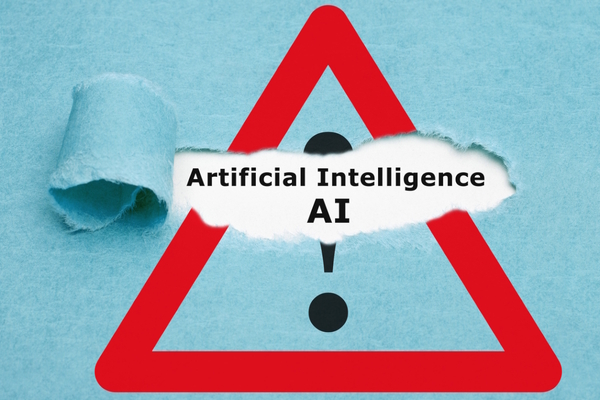Redefining chronic care with AI
Paul Landau at Careology argues AI is the predictive co-pilot shifting chronic care from reactive to proactive

In healthcare, progress doesn’t happen overnight. It builds quietly through collaboration, better data, and technologies that bring care closer to everyday life.
For those living with chronic conditions, this evolution cannot come fast enough. Breakthroughs in condition management mean that health issues that previously were untreatable are today often manageable for the long term and treated as a chronic condition. This in itself has a knock-on effect for health systems around the world.
By 2040, nearly one in five adults in England are expected to live with a major illness. Yet most of their care happens at home, not in a hospital. Our current healthcare infrastructure wasn’t built for that reality. The result is a system under strain, where clinical teams are overstretched and patients are often left to manage alone.
Shifting care to the home environment
The future of chronic care will depend on how well we can support people between appointments: detecting change early, guiding them through treatment, and preventing deterioration before it becomes an emergency. Achieving this demands that we effectively leverage digital tools to bring the hospital experience into the home.
Take Guy’s and St Thomas’ NHS Foundation Trust, for example. The team is using a new digital service to help cancer patients with certain chemotherapy side effects access timely support from trained Boots Macmillan Information Pharmacists - a first in the UK for cancer care. The pharmacists, trained as Independent Prescribers, offer expert advice and can issue prescriptions for next-day home delivery. This demonstrates how simple digital tools can close parts of the care gap by improving access, freeing up clinicians under strain, and ensuring patients get the help they need efficiently.
AI: the predictive co-pilot for proactive care
To scale proactivity and address far more complex risks, health systems are turning to AI, where the greatest potential lies in accelerating the shift from reactive to proactive care. Rather than waiting for patients to deteriorate, intelligent algorithms can identify subtle changes in symptoms, medication adherence, or daily patterns that may indicate emerging risks.
Beyond patient risk identification, AI can also accelerate drug discovery, streamline clinical trials, and monitor symptoms remotely, reducing costs and time to market by up to 20%. AI is also transforming diagnostics, with algorithms being trained to analyse imaging to detect diseases such as breast cancer or diabetic retinopathy with expert-level accuracy, often months earlier than human interpretation. The industry’s challenge is to translate this potential into practice, and closing this adoption gap is the critical next step. Rather than waiting for patients to deteriorate, intelligent algorithms can identify subtle changes in symptoms, medication adherence, or daily patterns that may indicate emerging risks.
Applications of AI in cancer care
Focusing on cancer care, the real power of AI is realised when it becomes more than a tool for collecting data, but a predictive co-pilot for patients and clinicians that helps to shift cancer care from reactive to proactive and empower more informed decisions throughout the cancer care journey.
By continuously analysing information such as patient-reported symptoms and vital signs, AI models accumulate relevant data that can establish a personal baseline for each individual, predict and flag when a patient may need urgent attention. When something changes in a patient’s vitals, AI has the potential to recognise the change. If integrated efficiently into healthcare systems, it could be designed to alert care teams so they can act early, before a manageable side effect becomes something more serious.
For patients, this brings reassurance and confidence, knowing that they are supported and monitored throughout their journey: a confidence that is backed by data. Studies show that hospital readmissions for chronic diseases decreased by 22% when AI-powered remote monitoring and wearables were utilised.
The real promise of progress in healthcare
Overall, AI in healthcare acts as the connector: the mechanism that ensures information flows to where it’s needed most. It allows professionals to work at the top of their licence and helps patients feel confident that their symptoms are being monitored continuously, not only during appointments.
It’s easy to think of AI in abstract terms: algorithms, analytics, automation. But at its best, AI gives back what the healthcare system has lost: time, focus, and the ability to care proactively. AI should advise doctors, but doctors must be the ones making decisions for their patients. By supporting professionals rather than replacing them, it restores the human element of healthcare.
As we look ahead, the combination of intelligent technology and professional collaboration will define how well we manage the growing burden of chronic illness. If we get this right, the next decade in healthcare will go beyond new tools and instead expand upon new relationships: between technology and people, between hospital and home, and between those who give care and those who receive it. That is the real promise of progress in healthcare.
Paul Landau is the founder and CEO of Careology
Main image courtesy of iStockPhoto.com and Maria Symchych-Navrotska

Business Reporter Team
Most Viewed
Winston House, 3rd Floor, Units 306-309, 2-4 Dollis Park, London, N3 1HF
23-29 Hendon Lane, London, N3 1RT
020 8349 4363
© 2025, Lyonsdown Limited. Business Reporter® is a registered trademark of Lyonsdown Ltd. VAT registration number: 830519543





